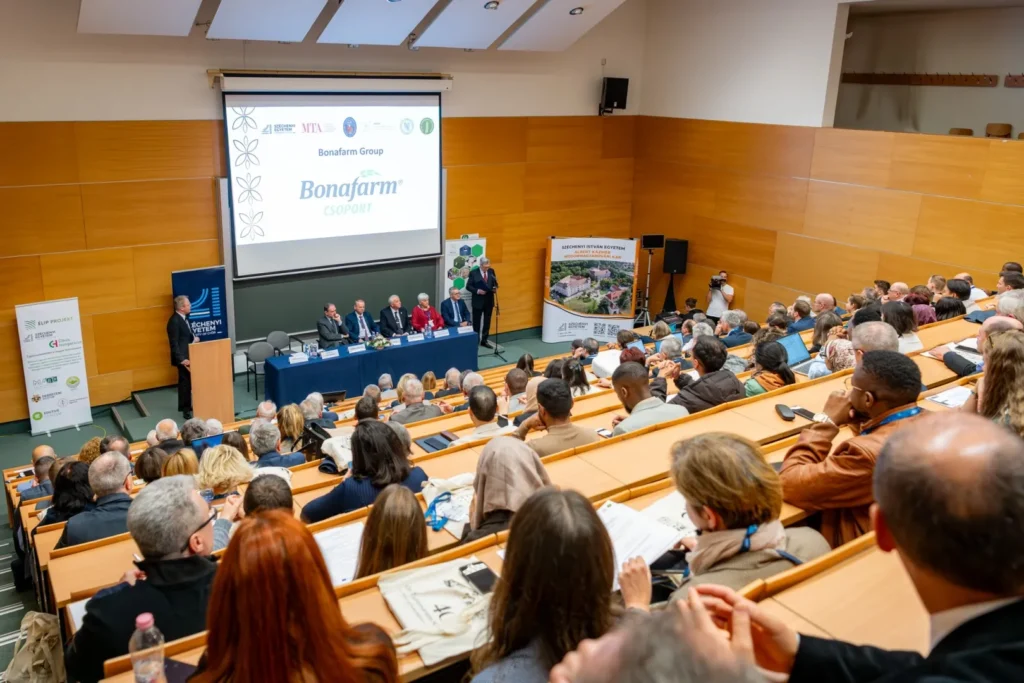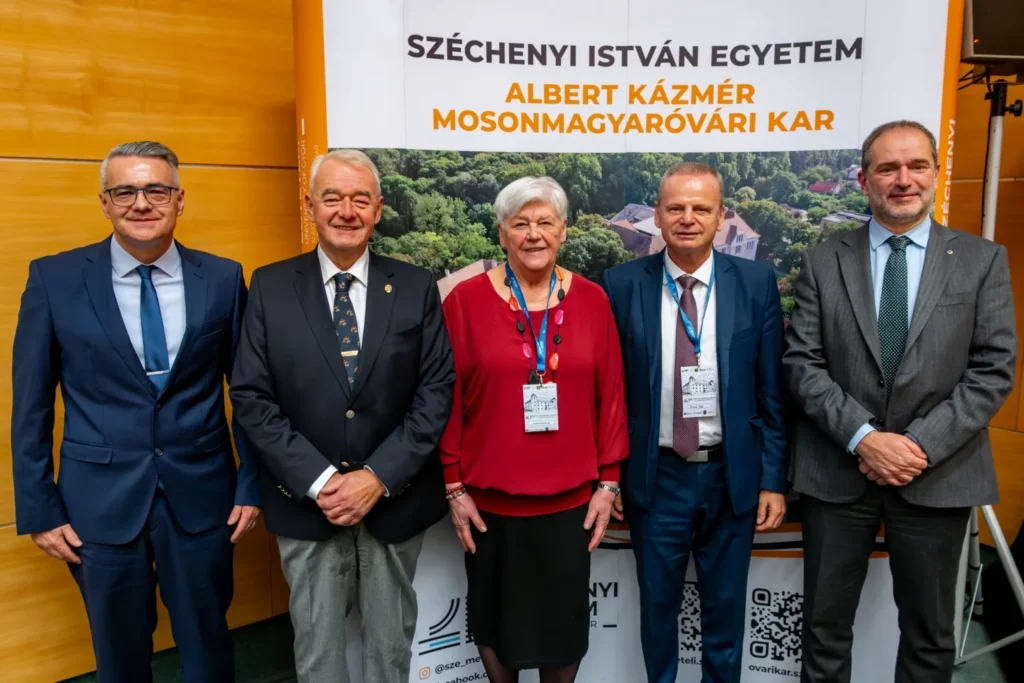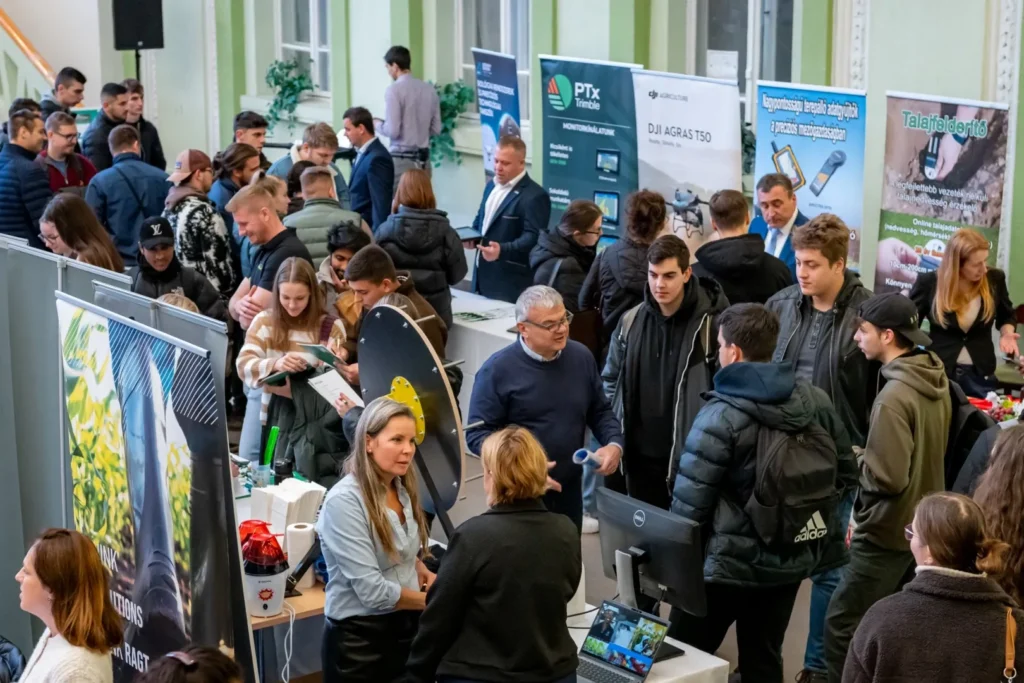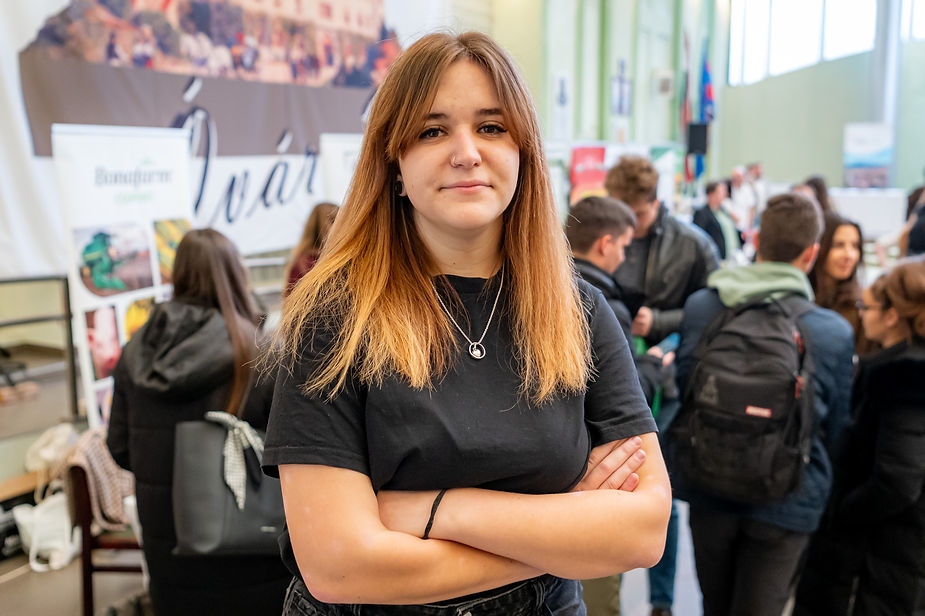Created: 2025.11.19. 10:18
The 40th Mosonmagyaróvár Scientific Day, held at the Albert Kázmér Faculty of Agricultural and Food Sciences at Széchenyi István University with the participation of nearly three hundred professionals, examined the relationship between the European Union’s Green Deal and the agricultural sector. Running parallel with the international conference was the Digital Agricultural Navigator professional exhibition and workshop, built around a similar central theme. Both events were held under the slogan: “Green Deal and agriculture: sustainability or competitive advantage?”
The 40th Mosonmagyaróvár Scientific Day International Conference was organised in recent days as a joint effort of the Albert Kázmér Faculty of Agricultural and Food Sciences of Széchenyi István University, the Animal Science Committee of the Hungarian Academy of Sciences (MTA), and the Agricultural Science Subcommittee of the MTA Veszprém Regional Committee. The event addressed key issues relating to the relationship between the European Union’s Green Deal and the agricultural sector, within the context of sustainability and competitiveness.

Research Professor and Dean of the Albert Kázmér Faculty of Agricultural and Food Sciences, Dr Tamás Tóth, explained that the Green Deal is transforming the agricultural sector, creating new challenges and opportunities for farmers, food industry operators and rural economies. “Sustainable production models and innovative technologies serve not only the cause of environmental protection, but can also offer long-term competitive advantages for market players. The aim of the conference was to explore, from a multidisciplinary perspective, how sustainability goals can be achieved while maintaining the competitiveness of the agricultural sector,” he said.

Within the framework of the professional presentations, participants gained insight into the latest trends in sustainable agriculture, the role of digitalisation, and the perspectives of rural development. Following the four plenary lectures, a total of 132 presentations and 47 poster sessions were delivered across the conference’s ten sections, featuring experts from institutions primarily related to Hungarian and international agricultural, food, veterinary, economic and engineering sciences.
The Faculty in Mosonmagyaróvár, together with the Agricultural Alumni Association, organised the Digital Agricultural Navigator professional exhibition and workshop alongside the conference. Nearly 50 exhibitors participated, including major companies and organisations of the Hungarian agricultural sector. The event sought to answer how sustainability in agriculture can become not only an obligation but—through digital technologies and innovations—a true competitive advantage. A key focus was ensuring that the future generations of young agricultural professionals become familiar with and capable of applying solutions based on digitalisation and precision farming. Through interactive educational programmes, secondary school and university students were also able to gain an insight into the world of agricultural innovation.

“This is my first time at the Agricultural Navigator, and I have gained very positive experiences. I am particularly interested in practical opportunities and job prospects. I am mainly focusing on the fields of animal breeding and feeding, as I would like to work in cattle reproduction biology in the future,” said Réka Vaskó, a second-year Animal Husbandry Engineering student, at the event.

Réka Vaskó, a second-year Animal Husbandry Engineering student, was interested in the open professional positions at the event (Photo: András Adorján)
Laura Jánó began her Agricultural Engineering studies this year. “I find the event extremely useful, as it provides an opportunity to learn about the companies active in the agricultural sector and the latest technological developments. It is important for us, even as students, to meet representatives of the profession and see the directions in which agriculture is developing,” she explained. She added that she is most interested in crop production, especially in how modern technology can be utilised to achieve more efficient and sustainable production.

Laura Jánó, a first-year Agricultural Engineering student, visited the exhibitors related to crop production (Photo: András Adorján)






